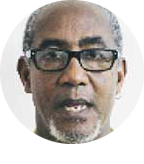
WHEN dissatisfied with the present status of things, to get a different result you must try to change the existing ones you complain about.
Change is sought in several areas in life — from your behaviour to your attitude, work ethics, values, social way of life, even political perspective.
In some circumstances these changes can be enhancing and in some others not for the better.
If you change your diet, it can lead to a healthier lifestyle. If you change your work ethic it can lead to more productivity; if you change your friends you can sometimes waste less precious time; if you change your lover, it can result in more comfort; and so on. But when it comes to political change it can become very ticklish because you have no control of the direction your country can take because your personal values or views for development can be different from the government of the day.
We all hope for positive and progressive change, but one man’s meat can be another man’s poison. I personally believe in the growth of the arts, social programmes for positive environmental development, education for all the people regardless of colour, class or social background, improved health conditions, environmental protection, growth in agriculture and growth in wealth for all. But all these needs or wants can be a figment of one’s imagination, and not necessarily the thinking of the powers that be.
Sometimes we try to want to be as good — or better — than another country, but how we get there, or the means to achieve these goals and ambitions can be complex, and one has to wonder if material goals are more important than people’s real needs.
Education helps people become more analytical, discussion causes more rational thinking, but imposition can never be the best way to go.
The farmer or fisherman’s needs should not be less important than the banker’s needs, the youth need special help, but so do the elderly. Life is about balancing and great leaders care for all concerns and see their people as one — and not divided by colour or personal friendship.
We sometimes have one common need, such as a dent in crime. We all can profit if we address crime issues, we all can profit from better health services, we all can profit from more wide-spread education, so we do have common wants. But division is our biggest problem for national growth and there are just too many cracks in the pipeline, too many people in the wrong positions and too many followers — and not enough leaders. And last but not least, too many people who won’t speak out.












